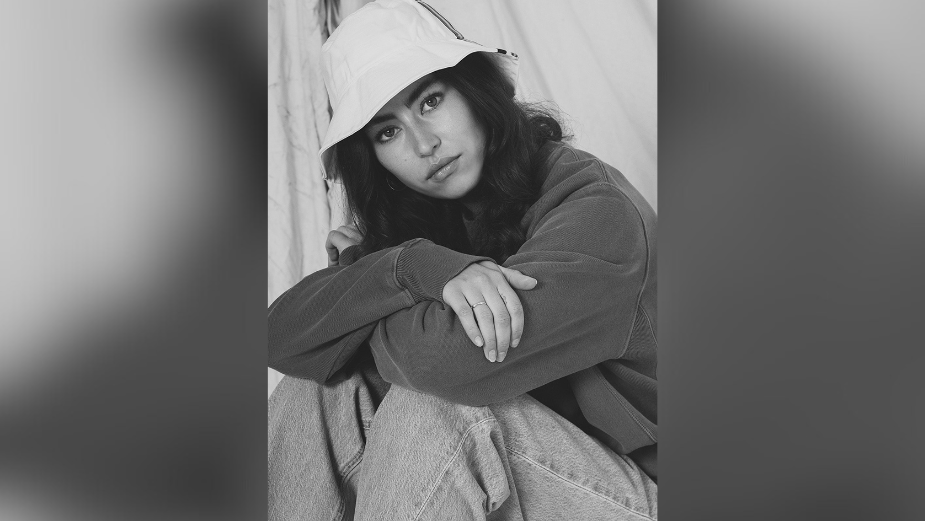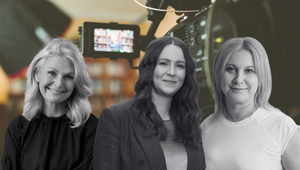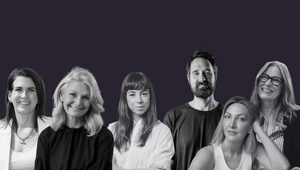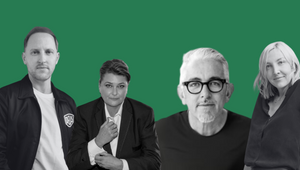
The Timeless Appeal of Analog Photography: Why Photographer Sophie Miya-Smith Shoots on Film

Sophie is a New Zealand-Japanese photographer who's all about capturing the connection between people and place through her lens. She’s got some serious artistic credentials, earning her bachelor's degree in Communication Design from The Auckland University of Technology before gaining a scholarship to study BFA Photography at The Academy of Art University in San Francisco, California.
She's spent time developing her career on both sides of the Pacific Ocean, making waves with her fashion-forward, youthful aesthetic that blends portraiture with contemporary style.
Whether she's in the studio or out and about on a lifestyle shoot, Sophie's all about capturing candid moments and playful expressions. And when she's not busy shooting, you can find her splitting her time between the surf town of Raglan and the bustling metropolis of Auckland, living her best life in New Zealand.
We asked her about her love of shooting her projects on film whenever she can. We delve into her personal journey with film photography, from inheriting her grandfather's camera to experimenting with different formats. And touch on the unique challenges of shooting on film compared to digital.
LBB: Tell us why you love to shoot on film.
Sophie> I visited Japan to see my Ojiichan (Grandpa) when I was around 17. Although I already had a DSLR camera, I had never tried film photography before. During my visit, he showed me a photo album from his honeymoon in Tokyo during the '60s, filled with stunning pictures of my newly married Obaachan (Grandma). It turns out he had captured these moments himself using a 35mm Konica Auto S, which he bought for their honeymoon. I was unaware that his keen eye for detail and beauty had been inherited by me. As a gift, he passed on the Konica, giving me my first film camera.

LBB: When did you first begin to shoot on film?
Sophie> I accumulated numerous 35mm cameras, mostly from family members and friends' parents who had old cameras boxed away in storage. I played around with them and would take them on trips, but it wasn't something I was initially obsessed over. Probably because there was such a hit-and-miss in the quality of photos and the quality of film cameras that I had access to. I ended up putting the focus back onto shooting digital for a while.
LBB: So it was something that has evolved over the years?
Sophie> At 18, my best friend gifted me a 1988 Polaroid Impulse. It was a fun way to delve into point-and-shoot photography, although film for it was expensive ($50 for 8 sheets). Whenever I could afford it, I took it out to play around with.
During university, I pursued Cinematic Arts as a minor and worked with 16mm film, using Bolex cameras. This was my first encounter with the darkroom and the challenges of working with moving images in complete darkness. It involved a lot of trial and error, but even the mistakes turned into happy accidents. However, shooting 16mm outside of university was too costly for a young graduate, so I shifted my focus back to digital photography and building my career in that field.
It wasn't until after the pandemic that I rediscovered film, this time with medium format. On a post-lockdown first date, my date had a Fujica GW690 with him and left it with me as collateral for another meet-up (which worked). Initially, I was afraid to use it, knowing it only had eight shots per roll due to its larger frame size. I waited until I had the right subject matter before shooting.
Exploring medium format during the pandemic felt fitting. We were immersed in a digital world, with screens dominating our lives. Having a mechanical, analog camera that slowed down time provided a humbling contrast to the digital and instant environment we were living in.

LBB: Can you share any examples of work where film stock really came to the fore and elevated the final production?
Sophie> My first roll on Medium Format was during the Black Lives Matter solidarity march in Auckland. Despite the fast-paced environment, shooting on Medium Format made everything feel like slow motion, allowing me to focus on details and be methodical with each shot. It heightened my awareness of surroundings, lighting, and the mechanics involved in capturing the perfect shot.
Similar to my 16mm film experiments, there were moments that weren't seamless. Yet, these imperfections bring an authenticity that digital can never replicate. Staying true to filmstock also provides a unique quality that no amount of filters or adjustments can achieve in the digital realm.
Over time, I had the opportunity to borrow and rent various Medium Format cameras from different sources. Recently, I purchased my own medium format kit, a Mamiya RZ67 previously used by the New Zealand Air Force. Interestingly, film photography wasn't an immediate obsession for me but a passion that slowly developed through cherished cameras passed down by loved ones in my life.

LBB: What are the most interesting debates or conversations you are having around film versus digital?
Sophie> As we enter a world where AI seems to dominate technology, I think it has instilled some fear within the industry. Will our jobs be taken away from us? There are constant camera upgrades that are released every year, but will it get to the point where the entire camera and the people behind the lens will be replaced too? As we get more futuristic with creativity, I think we will also miss the human element that is consequently removed from it. Something that has been created with human connection, something that is tangible, something that carries emotion. In the same way, people collect records now and appreciate the weight of the wax and the sound of the faint crackles, I think the appreciation of authenticity that analogue photography produces won't be dead anytime soon.

LBB: For anyone wanting to follow your lead, what advice would you share?
Sophie> I would say to remember that this process can be frustrating or even devastating when a roll comes back completely blank! But they all end up being little learning curves that I try to take away and appreciate in another light. And I think all of these elements have made me become a better photographer.
Please enjoy a sample of Sophie’s work: HERE















